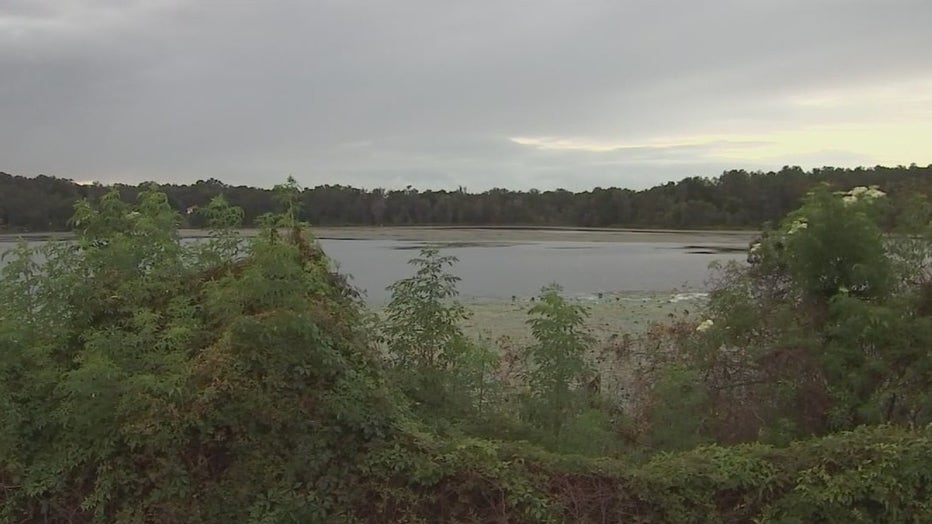Blue green algae toxins found on Moody Lake in Pasco County
PASCO COUNTY, Fla. - Pasco health officials are warning residents to steer clear of Moody Lake after finding harmful blue-green algae toxins in the water. In some cases, coming in contact with the toxins can cause upper-respiratory issues and skin irritation.
"They want to keep their pets away from it. They don't want to try to aerosolize the toxins, because it can cause upper respiratory issues for them, especially if they already have asthma or any or anything going on health wise, or if they're immune compromised," Florida Department of Health in Pasco County Assistant Administrator Greg Crumpton said.
According to the DOH, a water sample taken on November 2 showed the presence of harmful blue-green algae toxins. It's a type of bacteria commonly found in Florida’s freshwater environments.

Lake Moody in Pasco County
READ: Calls to reopen Midnight Pass grow with nearby waterway behind it 'dying'
"It has almost like a yellowish blue tent. It's a mat that forms on top of the water," Crumpton said.
As Crumpton explained, it’s most commonly found during the summer and fall months.
"It’s naturally occurring, but then it feeds off of other nutrients that might come off from runoff, from different properties, fertilize or whatever. They will end up feeding the bloom, which can end up making it larger," Crumpton said.
As of right now, Crumpton said they haven’t had any reports of fish kills and say, according to their records, this is the first time Moody Lake has shown the presence of toxic blue-green algae. Because there’s no public access points officials are mainly concerned about warning residents who live on the lake to avoid boating and fishing for the time being.
MORE: Most plastic recycling ends up in the trash, Greenpeace report finds
"If there is any type of a fish kill that people see, they can call the Florida Fish and Wildlife Resource Institute. And if they if anyone sees anything that looks like blue-green algae, they can call the Department of Environmental Protection," Crumpton said.
They plan to test the lake water again sometime in the next few weeks. To report fish kills to Florida Fish and Wildlife, you can do so by calling 800-636-0511.

